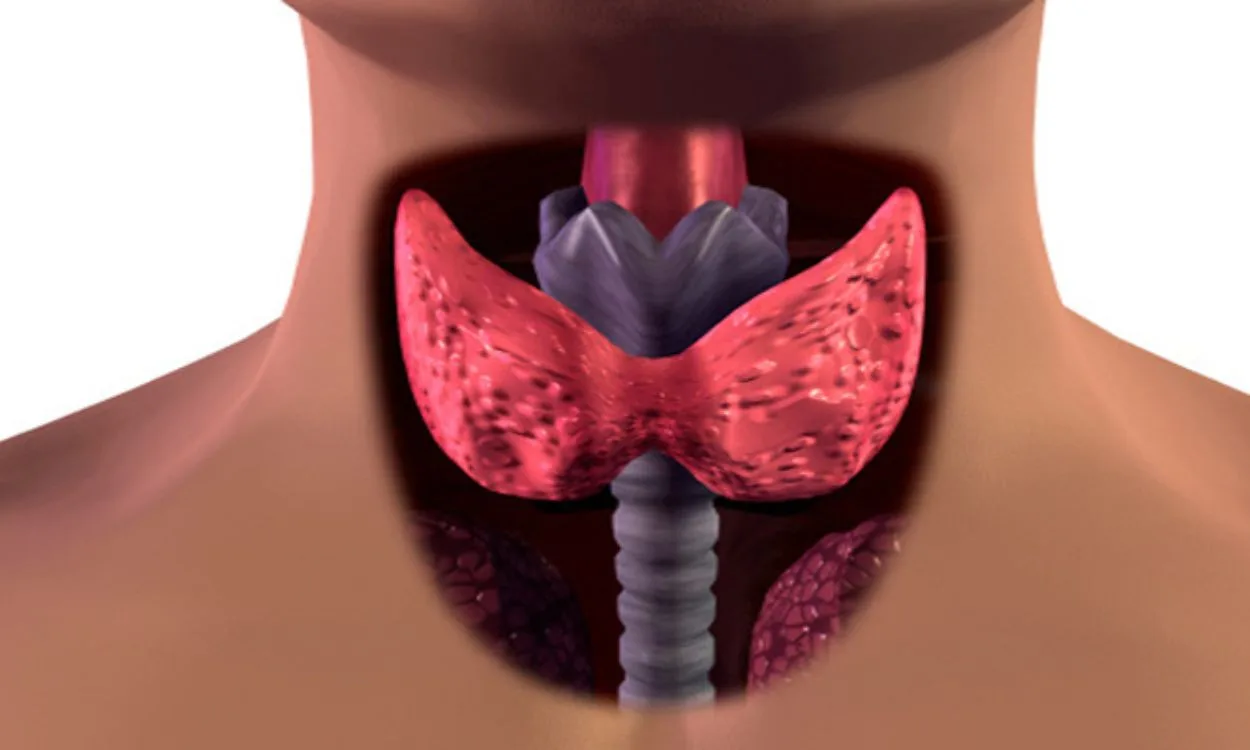How PCOD Impacts Thyroid Function: Understanding the Connection and Managing Your Health
The Intricate Relationship Between PCOD and Thyroid Function
What is PCOD?
Polycystic Ovarian Disease (PCOD), also known as Polycystic Ovary Syndrome (PCOS), is a common endocrine disorder affecting women of reproductive age. It is characterized by the presence of multiple small cysts in the ovaries, irregular menstrual cycles, and elevated levels of androgens (male hormones).
Understanding Thyroid Function
The thyroid gland, situated at the base of your neck, plays a critical role in regulating metabolism through the production of hormones such as thyroxine (T4) and triiodothyronine (T3). These hormones influence various bodily functions, including heart rate, body temperature, and energy levels.
The Connection Between PCOD and Thyroid Disorders
Research indicates a significant overlap between PCOD and thyroid disorders. Women with PCOD are more likely to develop conditions such as hypothyroidism, wherein the thyroid gland fails to produce sufficient hormones. This interconnectedness may be attributed to shared risk factors like insulin resistance, obesity, and inflammation.
Insulin Resistance: A Common Link
Insulin resistance is a hallmark of PCOD and a contributing factor to thyroid dysfunction. When cells become resistant to insulin, the pancreas compensates by producing more insulin, leading to hyperinsulinemia. Elevated insulin levels can disrupt thyroid hormone production and metabolism, exacerbating symptoms of both PCOD and thyroid disorders.
Inflammation and Hormonal Imbalance
Chronic inflammation, commonly seen in PCOD, can impair thyroid function. Inflammatory cytokines can interfere with the conversion of T4 to T3, leading to hypothyroidism. Additionally, elevated androgen levels in PCOD can further disrupt the delicate balance of thyroid hormones.
Symptoms of Thyroid Dysfunction in PCOD
– Fatigue: Persistent tiredness, even after adequate rest.
– Weight Gain: Difficulty losing weight despite efforts, or unexplained weight gain.
– Hair Loss: Thinning hair or hair loss on the scalp.
– Menstrual Irregularities: Irregular or absent menstrual periods.
– Mood Changes: Depression, anxiety, or mood swings.
Diagnosis and Management
Diagnosing thyroid dysfunction in women with PCOD involves a comprehensive evaluation of symptoms and laboratory tests such as TSH (Thyroid Stimulating Hormone), Free T4, and Free T3 levels. Management strategies may include:
– Medication: Thyroid hormone replacement therapy for hypothyroidism.
– Lifestyle Modifications: Balanced diet, regular exercise, and stress management.
– Nutritional Support: Adequate intake of iodine, selenium, and zinc to support thyroid health.
Managing PCOD and Thyroid Health with Fitpaa
Why Fitpaa?
At Fitpaa, we understand the complexities of managing PCOD and thyroid dysfunction. Our AI-driven Metabolism Monitoring and Management Technology offers personalized solutions tailored to your unique health needs.
Step 1: Take the Metabolism Assessment
Begin your journey with Fitpaa by taking our comprehensive metabolism assessment. This step helps identify the root causes of your health conditions, providing a strong foundation for your personalized Fitpaa Capsule.
Step 2: Get Your Fitpaa Capsule
Your Fitpaa Capsule is a holistic health plan designed by our team of experts, including fitness coaches, nutritionists, and doctors. It combines medical exercise therapy, medical nutrition therapy, and cognitive behavioral therapy to optimize your metabolism and support thyroid function.
Step 3: Follow Your Fitpaa Capsule Daily
Consistently following your Fitpaa Capsule is key to achieving your health goals. Our Fitpaa Digital Therapeutic Solution provides real-time guidance, habit-building techniques, and motivation to keep you on track. The Fitpaa app offers tools such as a virtual workout trainer, diet tracker, and progress tracker to make adherence easy and effective.
Experience the Fitpaa Difference
Imagine a life where managing PCOD and thyroid health is no longer a struggle. Fitpaa’s goal-oriented services come with a 100% guarantee, ensuring you achieve your health and fitness goals. With a dedicated team and a scientifically designed plan, your well-being is our mission.
Download the Fitpaa App Today
Join the Fitpaa community and take charge of your health. Download the Fitpaa app to start your journey towards a healthier, happier life. With Fitpaa, you can achieve your health and fitness goals with confidence and ease.
Try Fitpaa Risk-Free
All Fitpaa subscriptions come with a 7-day risk-free trial. If you’re not satisfied, you can cancel within 7 days for a full refund. We’re committed to helping you achieve your goals, not just selling subscriptions.
Conclusion
Understanding the impact of PCOD on thyroid function is crucial for effective management. With Fitpaa, you have the support and tools you need to navigate these challenges and achieve optimal health. Don’t wait—download the Fitpaa app today and transform your life.
By addressing the intricate relationship between PCOD and thyroid function, and offering a comprehensive solution through Fitpaa, this blog aims to educate and inspire readers to take proactive steps towards better health.









